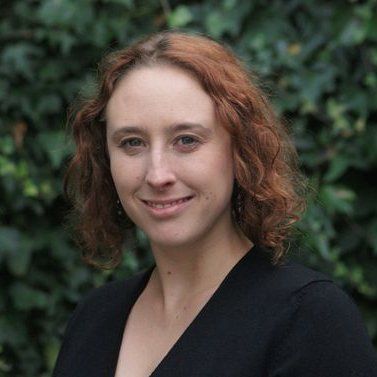Dr Victoria Basham is a Reader in International Relations at Cardiff University, Editor-in-Chief of the journal Critical Military Studies (Taylor & Francis) which she co-founded and was President of the European International Studies Association (http://www.eisa-net.org/) between 2017 and 2019.

What are you currently working on?
I like to work on multiple projects at once so my ideas can cross-fertilise so I'm currently working on quite a bit! In recent years I've discovered the joys of co-authoring and so everything I'm currently working on involves other scholars. I also believe strongly in the virtues of slow academia which also allows me to work on multiple projects at the same time. I then, if I'm lucky and have worked hard enough, get a flurry of publications but more importantly, ones I'm usually prouder of. So, I'm currently working on the case of Marine A and what it tells us about the particular ways we make sense of war crimes and the limitations of that, on vernacular understandings of insecurity in the 2017 London Bridge terror attack and the Grenfell Tower fire, on why international relations needs to pay more attention to scandals, on how women's unpaid labour in the home sustains militarism, and on questions of military social harm and what harms societies are willing to tolerate.
What got you into your field of study in the first place?
I became a critical military studies scholar by accident in some ways. I knew I really wanted to write a PhD but initially I thought I was going to research cultural and social barriers to accessing drug rehabilitation resources in the NHS but I didn't get the funding the first time around. I was poised to go off and do a masters and revise my proposal to try again next year when Paul Higate, now at the University of Bath, who taught me as an undergraduate and whose work I greatly (and still) admired, suggested that I should apply to do a PhD with him examining diversity and equality policies and practices in the British military. I hadn't considered the military as a site of research before that point but in my young mind I think I thought that I could tackle the military's problems and then go on to sort out the NHS. But once I started my research on the military I was hooked and now I work on war, militarism and political violence - hopefully someone else has done or will do that work on the NHS!
What are you currently reading, and is it any good?
Like my work process, my reading also involves dipping in and out of a range of books at the same time. I've had some heavy administrative duties in recent years but I'm now on sabbatical so I'm trying to catch up with my academic reading. Not having access to my office due to the pandemic has led to a lot of book buying recently and there's a ton of books surrounding me that I can't wait to get my teeth into including Nivi Manchanda's Imagining Afghanistan and Thomas Leahy's The Intelligence War Against the IRA. On the go right now are Jairus Grove's Savage Ecology, Eyal Weizman's Forensic Architecture, Jelena Subotic's Yellow Star, Red Star and Maria Rashid's Dying to Serve. They are all so intellectually enriching. I'm also reading Rosewater by Tade Thompson which is great - I love sci-fi. I also consume fiction podcasts and audiobooks whenever I can, usually when commuting and swimming so there's a bit less of that at the moment. It's really important to me to make time for fiction - I think it improves my writing and it's definitely good for my soul.
What advice would you like to give PhD students and ECRs that you wish you had been told?
I'm not sure that this is something that I wasn't told or just wasn't ready to hear but I think it took me a long time to realise that my PhD was a process and that my progression through it wouldn't always be steady or linear. It felt to me like a series of pennies finally dropping when I finally solved a part of the giant puzzle I was grappling with but sometimes there were huge gaps between one penny dropping and the next. It's easy to lose heart in those periods and I still have them now. What I've learned is to stop guilt-tripping myself quite so much when I'm stuck on something and to go away and do something else. The brain needs time to process stuff. I also again, not necessarily because I wasn't told it myself, want to advise everyone in academia but especially PhD students and ECRs to take time out. I appreciate this is an easy thing for me to say as someone no longer precariously employed but there really is more to life than academia. Those researching PhD's and just out of them face ridiculously hard challenges around employment and publishing and at the end of the day, rent needs to be paid but giving yourself and the people you love time is the best thing any of us have to offer. Oh, and don't let anyone tell you that academia or even lecturing is the only path available to you once you do a PhD. Academics have mad skills!
Who have been the most influential academics on your professional career?
There are way too many to mention. There are of course many brilliant people I could name but academia is a collective practice. Our ideas come from our interactions with each other and I think we should find more ways to acknowledge this; to see ourselves as part of a wider community committed to co-producing knowledge. It's such a shame that our institutions and so many of our practices mitigate against this by judging us solely as individuals. So, I will just say thank you to everyone who has had an influence on my professional career, which of course is by no means limited to academics.
What are your top tips for getting published?
As an editor of a journal and a book series I get asked this question quite a bit. I think my main tips are:
- Work to the format - if you're writing and submitting an article it needs to offer up something novel and in a concise way. Books allow you to draw out a wider set of ideas an arguments but they still need a coherent overarching argument that draws the constituent parts together. Journal articles or contributions to edited books are not the same as chapters in a PhD thesis, and books are not the same as PhDs. Each chapter of your PhD needs to build something into your overall thesis whereas a journal article or chapter for an edited book needs to offer something more bounded and complete. PhD's require you to conform to certain conventions and to include particular things. Books give you more freedom to explore and communicate your argument so the way you situate your core argument and unfold it is likely to look very different.
- Work to the scope and aims of the Journal/book series - take the time to look at what the Journal or book series say they publish and to read some of the things that they actually have. Most of the desk reject decisions I make are not so much about the quality of the work, but about the fact that it doesn't fit with what we publish.
- Have a clear argument and, once you know you have the right audience, make sure you tell readers why your work matters. I often see really interesting research but from authors who haven't told me about its significance or what fields or debates it contributes to. I also see people underplaying the value of their analyses. Whilst it's really important not to suggest your work is uniquely original if it isn't, it's also important to be clear about why other people should read, cite and get their students to work with it.
- If you're not sure, ask - I get a lot of submission inquiries for the journal and the book series. I would hope that most editors would work with prospective authors to some extent to help them determine if their idea for a publication is a good fit and on how they might develop it. Sometimes it takes editors time to respond as we usually have a lot going on and editorial work comes on top of the day job but it's still well worth starting a conversation with an editor if you're unsure about anything. Hopefully their advice will go some way towards helping you to figure out where your work needs to go and what shape it needs to be in when it goes there. But don't just ask editors. Ask peers, mentors and non-academic folks in your life - the latter can be especially helpful if you want to know if your argument makes sense.
